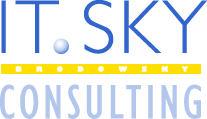Databases
Most larger-scale applications use relational, transactional databases, e.g. Oracle, PostgreSQL, MariaDB, mySQL, MS-SQL-Server, or DB2 for a convenient way to store and access data.
However, so-called "NoSQL" databases are also common, especially in the field of Big Data.
Technology Skills Related to SQL Databases
At an early stage in the project, these SQL databases can often be used interchangeably. Of course, certain requirements regarding performance or additional features can rule out some of the options. But the basic functionality is provided and technically sound at least in the case of DB2, Oracle, MS-SQL-Server, and PostgreSQL. Changing systems at at later stage can nonetheless prove tricky, as more often than not, software will by then have been tweaked to optimally interact with a certain database product. Another factor is that smooth migration of large data volumes from one product to another is not easy.
- SQL
- Oracle
- Oracle: SQL*Plus
- Oracle: ProC
- Oracle: PL/SQL
- PostgreSQL
- MariaDB & mySQL
- MSSQLServer
- DB2 on z/OS
- JDBC
- JPA/JPA2
- Hibernate
- JDO
- DBI
- ActiveRecord
Technology Skills Related to NoSQL Databases
Unlike relational databases, which are largely standardized, making them interchangeable with regard to basic functionality, so-called NoSQL databases differ substantially, as a result of which it is advisable to put some thought into which one best suits your purpose.
- MongoDB
- CassandraDB
- Riak
- Development of a NoSQL database specifically for a unique project
Further Information
- PostgreSQL (Wikipedia)
- Oracle (Oracle Switzerland, Wikipedia)
- DB2 (Wikipedia)
- MS-SQL-Server (Wikipedia)
- MariaDB (Wikipedia)
- MySQL (Wikipedia)
- MongoDB (Wikipedia)
- CassandraDB (Wikipedia)
- neo4j (Wikipedia)
- Riak (Wikipedia)
- Databases for Linux
Blog Articles:
Tannwaldstrasse 26
4600 Olten
Switzerland
Phone: +41 79 2704802
info@it-sky-consulting.com
